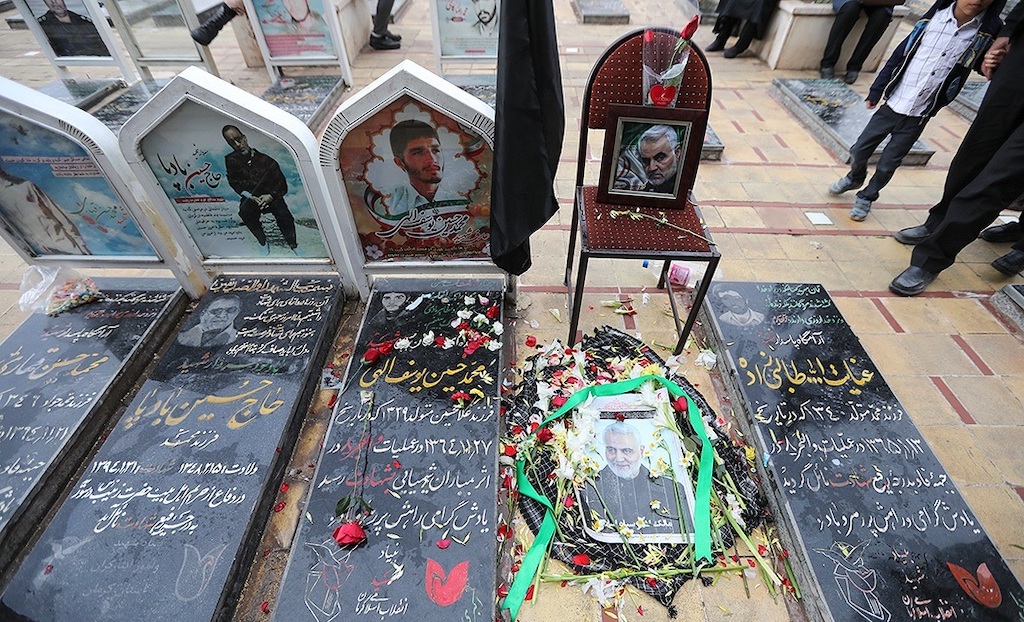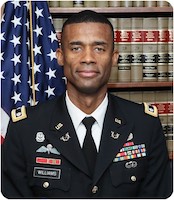Was the Soleimani Killing an Assassination?
While the United States prohibits assassination as a matter of national policy, not every killing violates this ban. And even if the killing did not have an international legal basis, it may not necessarily constitute an assassination under the U.S. government’s definition of the term.

The Jan. 3 killing of Major General Qassem Soleimani, the head of Iran’s Quds Force, has generated a robust conversation in the media on whether the air strike should be characterized as an “assassination.” Explaining its decision not to use the term in referring to the killing, the Associated Press wrote that doing so “would require that the news service decide that the act was a murder, and because the term is politically freighted.” NPR’s public editor, meanwhile, said that the radio service “feel[s] it is an appropriate use of the word, which is defined as the killing of a political leader by surprise.” This debate over whether the action was an assassination is unhelpful in determining whether there was a legal basis under international law for the air strike. While the United States prohibits assassination as a matter of national policy through Executive Order (EO) 12333, not every killing violates this ban. Furthermore, even if the killing did not have an international legal basis, it may not necessarily constitute an assassination under the U.S. government’s definition of the term.
EO 12333 grew out of President Ford’s 1976 EO 11905, which “prohibited any member of the U.S. government from engaging or conspiring to engage in any political assassination.” This executive order was promulgated to address concerns that emerged from the Church Committee, a Senate committee charged with investigating potential illegal activities by the intelligence community. In the recommendation section of its interim report, the committee condemned the “use of assassination as a tool of foreign policy.”
EO 11905 was superseded by President Carter’s EO 12036, which, in turn, was followed by President Reagan’s 1981 EO 12333. This final order expressly states in paragraph 2.11 that “no person employed by or acting on behalf of the United States Government shall engage in or conspire to engage in assassination.” Despite a number of subsequent amendments to the executive order, this paragraph has remained unchanged through the various presidential administrations. However, the term “assassination” was left undefined in the order.
The most helpful government document explaining how the U.S. approaches assassination in regard to a military operation is a 1989 memorandum coordinated with and concurred in by the Department of State’s legal adviser, the Central Intelligence Agency’s general counsel, the National Security Council’s legal adviser, the Department of Justice Office of Legal Policy, and the civilian and military legal advisers in the Department of Defense. The memorandum was drafted by Hays Parks, thenchief of the International Law Branch, International Affairs Division in the Army’s Office of the Judge Advocate General. The memorandum was drafted to “explore assassination in the context of national and international law to provide guidance in revision” on the U.S. Army’s Field Manual on the Law of Land Warfare to ensure the document was consistent with EO 12333. Accordingly, the Parks memorandum is concerned primarily with the applicability of international law to these situations. While we recommend reading the entire eight-page document, three points are worth highlighting.
First, the Parks memorandum defines an assassination as an act of murder for political purposes. As an example, Parks cites to a 1978 killing of a Bulgarian defector by Bulgarian State Security agents on the streets of London with a poison-tipped umbrella. (For a more recent example along similar lines, consider the Feb. 13, 2017, killing of Kim Jong-nam, the half-brother of Kim Jong-un, with the nerve agent VX in Kuala Lumpur’s international airport terminal.) The Parks memorandum definition was further accepted in a January 2002 Congressional Research Service (CRS) report, which stated that “an assassination may be viewed as an intentional killing of a targeted individual committed for political purposes.”
Second, the memo and the CRS report both recognize that the term “assassination” may have different connotations depending on whether the act takes place in wartime or peacetime. While a “political” murder is illegal in either situation, in armed conflict there is greater allowance for violence. In such circumstances, the use of violence based on an individual’s status or conduct could be lawful as a matter of first resort. Therefore, if an individual is a combatant, a member of an organized armed group, or a direct participant in hostilities, targeting that individual is obviously not an assassination.
Conversely, absent an armed conflict, there is a different set of rules and lethal force is expected to be used only as a last resort, the memorandum states. Article 2(4) of the U.N. Charter requires states to “refrain in their international relations from the threat or use of force against the territorial integrity or political independence of any state, or in any other manner inconsistent with the Purposes of the United Nations.” This prohibition has two exceptions—the most relevant being Article 51’s recognition of a state’s inherent right of self-defense. Also, according to the Parks memorandum, if the right of self-defense is triggered, then there is international legal justification for counteracting an ongoing or imminent threat.
Third, the Parks memorandum concludes that an “overt use of military force against legitimate targets in time of war, or against similar targets in time of peace where such individuals or groups pose an immediate threat to the United States citizens or the national security of the United States, as determined by competent authority, does not constitute assassination” and therefore “would not be prohibited by the proscription in EO 12333 or by international law.”
What EO 12333 and the Parks memorandum suggest is that there is no point to continuing to debate whether the drone strike on Soleimani was an assassination without first determining the legality under international law of the United States’s action. Only after determining whether the strike was unlawful in the context of an armed conflict or was not a legitimate act of self-defense does the possibility of assassination arise.
Under international law, if the strike took place during an international armed conflict and Soleimani was targeted in his role as the head of the Quds Force, then it was lawful. If the strike occurred during a non-international armed conflict, and he was the operational leader of the militia group (or perhaps a military adviser to that group), then it would also be lawful. If the strike was done outside of armed conflict, and the United States properly acted in self-defense to prevent imminent attacks organized and/or controlled by Soleimani, then again it would be lawful.
If none of the above circumstances occurred, the United States did not have a legal basis for the air strike and committed an unlawful act under international law. But this would not necessarily make the air strike an assassination as prohibited by EO 12333. Under the Parks memorandum and CRS report, to be defined as such, the killing must have a political purpose. Whether there is a political purpose or not for the Soleimani air strike may be a relevant follow-on question. However, it is a subjective analysis that has no bearing on the lawfulness of the air strike under international law—and, consequently, has limited initial legal value.
For this reason, arguing whether the Soleimani air strike was an assassination is premature without first addressing the underlying question: Was the strike legal or not?






